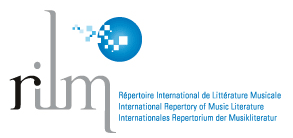Contemporary Opera in Buenos Aires at the Turn of the Century
Keywords:
Contemporary Opera, Argentine Music, Music and Dictatorship, Music and StageAbstract
Between the 1990s and the present day, Buenos Aires became a city of high visibility for contemporary opera. On the one hand, through local staging of international operas, and on the other, through the commission and production of new works by Argentine composers. In this text we will consider, first of all, the overall “state of things” in the field of the opera in the second half of the twentieth century, to point out then some specificities of the genre in the city of Buenos Aires. Secondly, we will look at the first productions of international operas in the local context to see how these productions were adapted to the local milieu and what was their critical reception. We will especially consider the role of these works in rejuvenating and consolidating new audiences for contemporary music. Finally, we propose a comparative study of three operas whose librettos deal with historical and affective problems of the Chilean and Argentine dictatorships of the 1970s, to assess how different authors address the complex relationship between political violence, memory and musical forms, with the purpose of making visible the critical place that a genre like opera can have in the 21st century.
Published
Issue
Section
License
ATTRIBUTION-NONCOMMERCIAL 4.0 INTERNATIONAL
https://creativecommons.org/licenses/by-nc/4.0/
You are free to:
- Share — copy and redistribute the material in any medium or format
- Adapt — remix, transform, and build upon the material
- The licensor cannot revoke these freedoms as long as you follow the license terms.
Under the following terms:
- Attribution — You must give appropriate credit , provide a link to the license, and indicate if changes were made . You may do so in any reasonable manner, but not in any way that suggests the licensor endorses you or your use.
- NonCommercial — You may not use the material for commercial purposes .
- No additional restrictions — You may not apply legal terms or technological measures that legally restrict others from doing anything the license permits.
Notices:
You do not have to comply with the license for elements of the material in the public domain or where your use is permitted by an applicable exception or limitation .
No warranties are given. The license may not give you all of the permissions necessary for your intended use. For example, other rights such as publicity, privacy, or moral rightsmay limit how you use the material.







